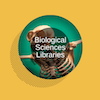Supporting your presentation skills
Presenting your work and ideas to new and different audiences can be both rewarding and a little bit nerve-wracking. From conference posters and presentations through to a snappy YouTube video or social media post, getting the right message across that best represents you is essential. We've tried to pull together some resources on what is a very broad topic together to help support you in getting started.
Here you will find a quick handout with some initial ideas to get you started, a video that summarises some of our top tips as folks who have had to give a lot of presentations and translate ideas for different audiences, through to lots of opportunities to learn with us on a range of topics. As this skill area is one that is constantly evolving, expect to find new things appearing over time as we continue translating our knowledge into useful tips for you and your work.
With so many ways of presenting work that is not just something formal like a dissertation or journal article, it can be hard to know where to start and what questions to ask. We recommend thinking about the following points to help you narrow down your presentation strategy:
- Consider your format - what is the best medium for presenting your work? It could be a conference poster or a presentation with slides, but it could be something else
- Pitch at the right level - consider your audience and adjust accordingly. You might need to translate technical terms to avoid assuming they will understand what you're talking about
- Use accessible design - use sans serif fonts and complementary colours, among other things. Take advantage of online and inbuilt accessibility tools to check your work. We recommend Adobe Color for accessible palette suggestions
We've summarised these points in a downloadable handout for you to take away and refer back to when planning how to present your work.
We've designed and delivered lots of different things in many different ways as a team. In this video, join George as they work through helping you identify why you'll present your work, how you'll do that with good accessible design in mind, and how you'll present your work with confidence. If you need a video transcript, we've got one of those for you too.
With so many ways of presenting work, we've got different opportunities to learn with us on specific methods so check out what we have on offer and pick what best fits your needs.
How to prepare and present an academic poster
Presenting your work in the form of an academic poster is something many undergraduates have a chance to do but getting started can be a bit daunting. We'll help you work out what your key message is, give you some advice on what to include (and what to cut out), how to make everything look visually appealing as well as accessible for a diverse range of audiences. Further information can be found on UTBS.
Building your presentation skills with confidence
Giving a presentation is something everyone has to do whether it is for your course, for an extracurricular activity or society event, or even in the workplace. In this session we'll take you through planning your presentation, how to make everything look good as well as accessible for a diverse range of audiences, as well as introducing you to techniques to present with confidence. As with all our other sessions, you can book onto this course via UTBS.
How to prepare a polished conference poster
Poster sessions are often the first way you get to communicate your research as a postgraduate or early career researcher, but we've all seen examples of awful ones. This session aims to make sure your poster is the best it can be by sharing design tips and accessibility guidelines, as well as giving some advice on presenting your poster.
How to give great presentations
Presentations are a major part of communicating your research at all levels of academia, but how can you make yours the one that everyone remembers at the end of the conference? In this session we'll take you through planning your presentation, how to make everything look good as well as accessible for a diverse range of audiences, as well as introducing you to techniques to present with confidence.
Communicating yourself and your research online
A good digital presence is becoming increasingly necessary for both academic networking and communicating your research. But how do you know which platforms to pick? In this session, we talk you though the various academic platforms you should think about engaging with, discussing the pros and cons so you can make an informed decision, looking at sites like Google Scholar, ORCID and ResearchGate. We also discuss academic social media, with reference to popular sites such as Instagram, Mastodon, Bluesky, YouTube and LinkedIn.
Publishing your research
Knowing how to go about publishing you research is an essential skill for any researcher. In this session, we discuss all the essential information needed to create an effective publication strategy. This includes choosing your professional name, considering what you actually want to publish, and how to choose where to publish, including a look at how to responsibly use journal metrics. We will also discuss the publication process and demystify things such as peer review and copyright transfer agreements, before exploring open access and Creative Commons.
If you haven't quite found what you're looking for with the resources on this page, you can email us to discuss your questions and needs further. We can help you via email, an online chat through Teams or Zoom, or an in-person chat in a convenient location in Cambridge.
You can email the Biological Sciences Libraries Team as a whole at sbslibraries@lib.cam.ac.uk or see if you have a subject librarian in your area on our Librarians page.









